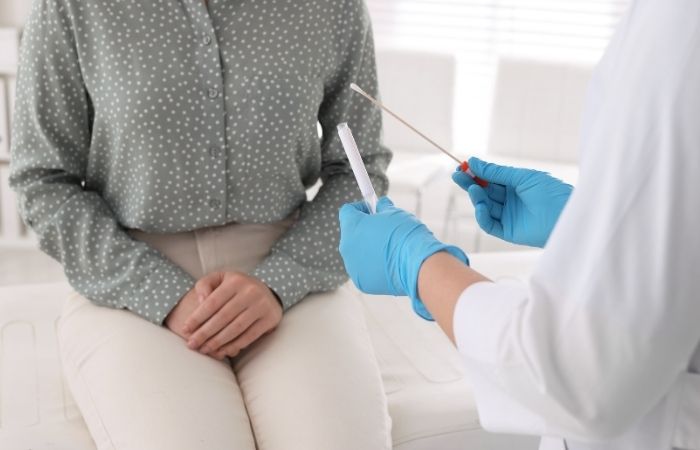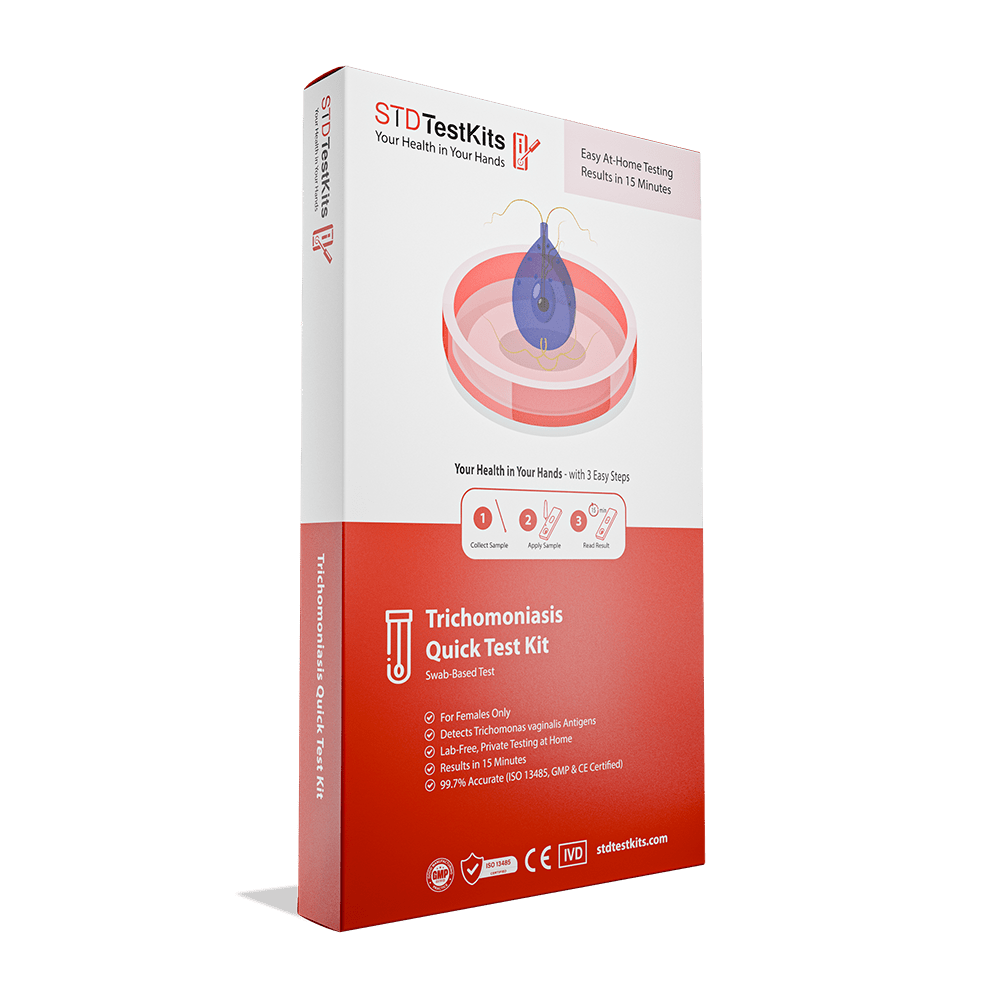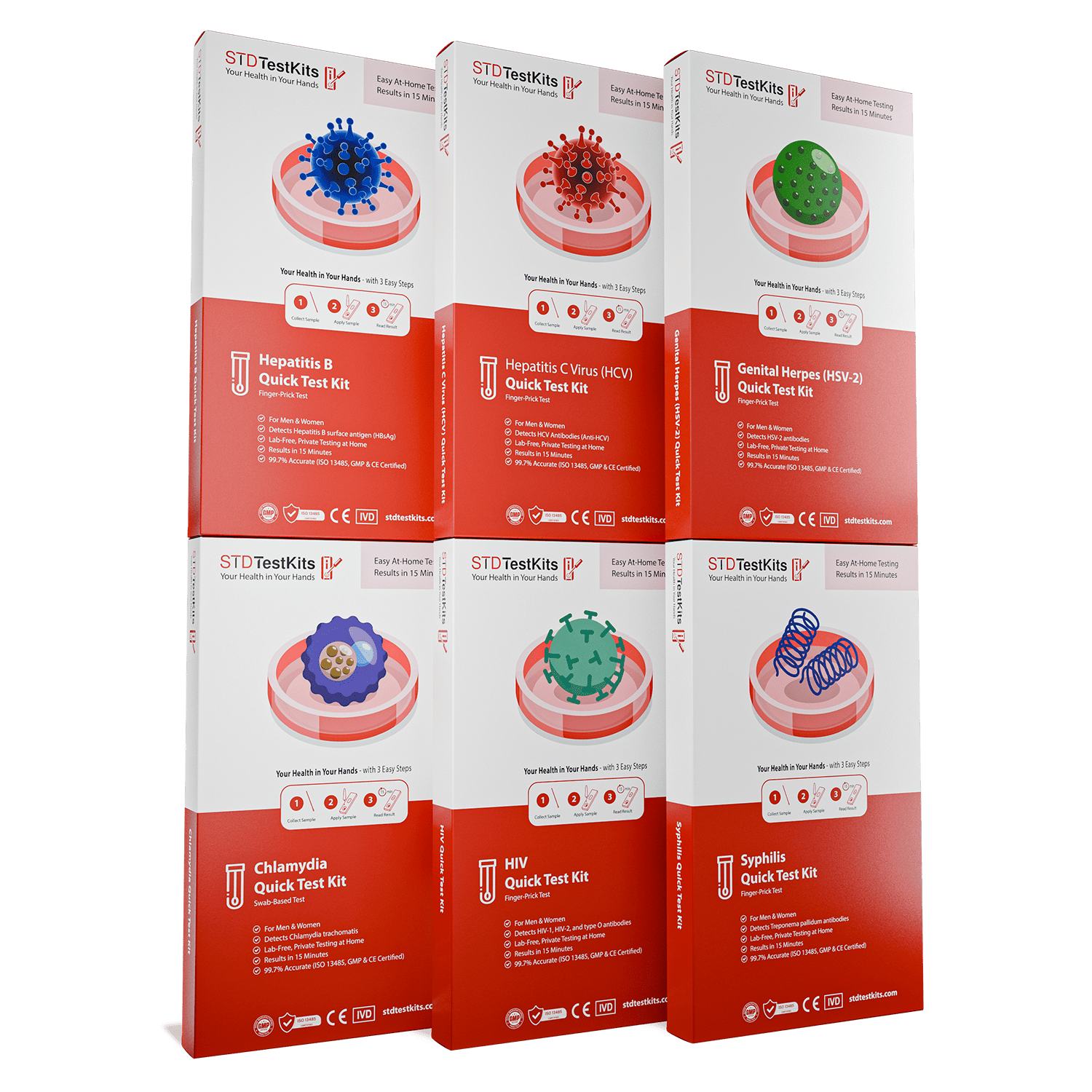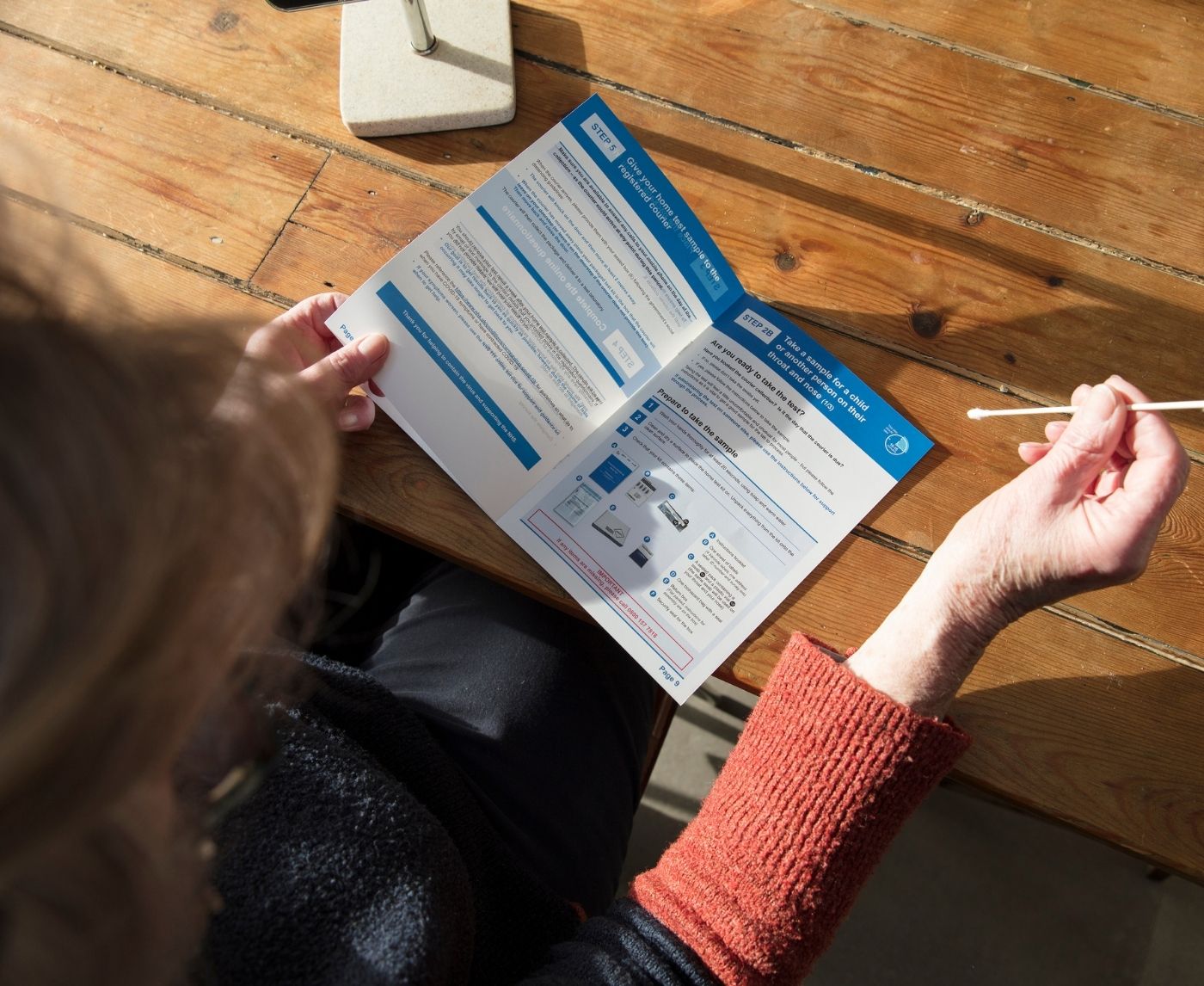KZN’s HIV Progress Is Real, But Here’s Why At-Home Testing Still Matters
Quick Answer: A strong or foul-smelling discharge, especially when there’s no change in color or texture, can be an early sign of trichomoniasis, a common but often overlooked STD. Testing is fast, discreet, and available at home.
Why We Miss the Smell (And Why It Matters)
Smell doesn’t usually top the list of STD symptoms. Most people search for “burning,” “bumps,” or “green discharge”, but odor? That often gets chalked up to diet, stress, or a skipped shower. This is part of why trichomoniasis goes undiagnosed in millions of people each year. It hides in plain scent.
Unlike yeast infections, which usually cause thick white discharge and intense itching, or bacterial vaginosis (BV), which is famous for its fishy smell but often follows sex or antibiotics, trichomoniasis can sneak in subtly. Many people don’t notice it until a pattern emerges: the odor worsens after sex, lingers after periods, or seems disconnected from hygiene.
The CDC estimates that over 70% of people with trich don’t show classic symptoms. But the odor? It’s one of the first red flags, and one that gets ignored or misattributed far too often according to the CDC.
What Trichomoniasis Actually Is (And Isn’t)
Trichomoniasis is a sexually transmitted infection caused by a parasite, Trichomonas vaginalis. Unlike bacterial STDs like chlamydia or gonorrhea, or viral ones like herpes, trich is protozoan. It behaves differently, spreads easily, and thrives in genital fluids. It can infect people of all genders and orientations, though symptoms tend to show up more in people with vaginas.
Here’s the part that catches most people off guard: you don’t need full penetrative sex to get it. Genital contact, sharing sex toys, and even skin-to-skin transfer can be enough. Trich can live in the urethra, vaginal canal, or under the foreskin, sometimes silently, sometimes with odor as the only clue.
The infection is rarely dangerous on its own, but it can make you more vulnerable to other STDs, increase the risk of pelvic inflammatory disease, and, during pregnancy, raise the chance of preterm birth. This is why early detection matters.

People are also reading: Trichomoniasis vs Prostatitis: What’s Really Causing Your Symptoms?
Table 1: What Sets Trichomoniasis Apart From BV and Yeast
Figure 1. This comparison helps distinguish when odor alone may suggest trichomoniasis over BV or yeast. Always confirm with testing.
“I Had the Smell for Weeks, But No One Mentioned Trich”
Tanisha, 31, says her OB-GYN diagnosed her with BV three times in a year. The metronidazole gel worked, temporarily. But a few weeks later, the smell came back. It wasn’t until she saw a new provider who ran a full vaginal panel that she finally got the right diagnosis.
“I cried when I saw the word ‘trichomoniasis.’ I didn’t even know what that was. I felt gross, ashamed, and relieved, all at once.”
She was treated with a single-dose oral antibiotic and retested two weeks later. Negative. Finally. What stayed with her most wasn’t the diagnosis, it was the silence before it. “No one told me trich was even a thing anymore,” she says. “I thought I was just being paranoid about my smell.”
This isn’t rare. Many clinicians only test for trich if patients ask or if standard STI panels don’t explain symptoms. That’s changing, especially with newer, faster at-home test options, but the gap still leaves many people living with odor and uncertainty.
When the Discharge Looks Normal, But Smells Off
One of the biggest misconceptions is that all STDs cause some visible change. A rash. A bump. A color shift. But trichomoniasis can present with discharge that looks nearly identical to normal lubrication or arousal fluid. It may be slightly frothier or more yellow than usual, but nothing that screams “infection.” That’s why the nose often picks it up before the eyes do.
Another common sign is A worsening of odor after sex. That's not just your mind playing tricks on you. Semen alters vaginal pH, and trich thrives in those changes. The smell might be stronger the next morning, especially if you didn't use a condom. Sweat, period blood, and even tight underwear can make the smell stronger, but the reason for it stays the same.
Odor linked to trich isn’t just about embarrassment. It can change how close you feel to someone, how confident you are, and even how you feel in your body. Many people report a feeling of “being dirty,” which can spiral into avoidance of sex, dating, or social situations. That emotional toll is real, and fixable.
The Testing Gap: Why So Many Cases Are Missed
Trich is one of the most common STDs in the U.S., but it’s rarely tested for unless specifically requested. Trich is not usually included in standard panels like chlamydia or gonorrhea. This means that people who have symptoms are either misdiagnosed with BV or not taken seriously at all. For people with penises, it’s even worse. Routine screening for trich is almost never offered, even though they can carry and transmit the infection silently.
Newer tests now offer high sensitivity through NAAT (nucleic acid amplification) methods or rapid antigen swabs. These can detect the DNA or proteins of the parasite even when symptoms are faint or absent. At-home test kits have made this process more accessible, allowing users to collect a swab or urine sample privately and mail it to a lab, or read it at home, depending on the brand.
And yes, these options are reliable. According to recent studies, some trich tests now approach 95–100% sensitivity when used correctly and within the infection window.
Table 2: Comparing Trichomoniasis Testing Options
Figure 2. Lab-based NAATs are the gold standard for trichomoniasis detection, but newer rapid kits now offer fast, discreet alternatives at home.
Case Story: “I Ordered a Yeast Infection Pill, But It Didn’t Help”
Lena, 26, thought she had a yeast infection. No pain, no discharge, but a weird smell that just wouldn’t go away. She ordered an over-the-counter antifungal and hoped for the best. It did nothing. Two weeks later, she still felt fine physically, but emotionally? The constant self-consciousness was eating her up.
“I was scared to get intimate with anyone. I was using body sprays and showering twice a day. I even stopped going to yoga because I thought people could smell it.”
Eventually, Lena found a site that let her order a trichomoniasis rapid test kit discreetly. The test was positive. She took a single-dose treatment prescribed via telehealth, and within days, the smell faded. But it wasn’t just the medicine, it was the relief of knowing it wasn’t her fault, and that she could talk about it without shame.
You can order a discreet combo test kit here that checks for trichomoniasis, chlamydia, gonorrhea, and more, no clinic visit needed.
Why Treating Trich Matters, Even If It Feels Mild
Left untreated, trichomoniasis may seem like a nuisance more than a threat. But research shows it can increase susceptibility to other STDs, including HIV. It can also cause persistent urethral and vaginal inflammation, raise the risk of complications during pregnancy, and trigger long-term reproductive issues if ignored.
Treatment is typically straightforward: a one-time dose or short course of antibiotics, usually metronidazole or tinidazole. These medications are highly effective but require complete abstinence from alcohol for 24–72 hours after use. Sexual partners should also be treated at the same time to prevent ping-pong reinfection.
This last part, partner treatment, is where many cases reappear. You feel better, but your partner wasn’t treated. A few weeks later, the odor returns. That’s why full-circle care includes talking openly (or anonymously) with your partners about testing and results.
“I Thought It Was Just Hormones” , The Smell We Gaslight Ourselves Into Ignoring
Hormones do affect vaginal discharge. But the idea that a strong, fishy, or metallic smell is “just ovulation” or “leftover period blood” keeps too many people from investigating something treatable. Our bodies do have natural variations, but persistent odor, especially when it feels wrong to you, is worth checking out.
Many people are conditioned to downplay vaginal odor. To scrub it away. To hide it. To buy sprays, wipes, pH balancers, and douches instead of asking, “Could this be an STD?” In reality, those products can mask the smell temporarily, but they don’t address the cause. And in many cases, they worsen it.
Trichomoniasis doesn’t care about your pH strips. It doesn’t care if you’re sexually active or haven’t had sex in months. It only cares that you didn’t test for it. So it sticks around, hiding behind scent, waiting to be noticed.
Do You Need to Retest After Treatment?
If you’ve tested positive and been treated for trich, it’s important to wait about 2–3 weeks before retesting. Testing too soon can pick up dead parasite DNA and give you a false positive. After three weeks, a negative test usually confirms successful treatment, unless you've had re-exposure.
Retesting isn’t just about peace of mind. It’s about closing the loop. Many providers now recommend a “test of cure” for trich, especially in people with repeat symptoms, multiple partners, or a history of misdiagnosis. Even if you feel better, confirming the infection is gone helps protect your partners, and your future self.
If you’re unsure when you last had sex, or you’re in a new relationship, ordering a kit and testing proactively is a no-blame, all-care approach. You don’t need a reason to check in with your body. Curiosity is enough.

People are also reading: Can Heat Rash Be an STD? Here’s When to Worry
Who Gets Trichomoniasis? (Hint: It’s Not Just “Promiscuous” People)
The stereotype that trichomoniasis only affects people with lots of partners is outdated and harmful. Many people who test positive report having had just one recent partner, or even celibacy for weeks or months. The parasite can linger undetected and become active again later, especially if the immune system is strained.
Trich is also more common in communities with limited access to sexual health services. People of color, those in rural or under-resourced areas, and anyone facing stigma around sexual wellness are disproportionately impacted. But this isn’t about shame. It’s about systems. Testing is a way of reclaiming control.
Visit STD Rapid Test Kits for discreet at-home testing that fits your schedule, your privacy, and your body.
Case Story: “I Was Clean, But I Still Had It”
Jonas, 35, had only been with one partner since his last full panel, and his clinic never mentioned trich. “They ran the usual, HIV, chlamydia, syphilis, gonorrhea, but nothing about trich.”
His girlfriend kept getting diagnosed with BV, and each time, they’d argue. She thought he was cheating. He thought she had hygiene issues. Then one day, she handed him a rapid test kit and said, “Just try it.”
It was positive. He was floored. “I felt awful. I’d had no symptoms. Not even a weird smell. I just didn’t know men could even get it without symptoms.”
He took the antibiotics and they retested together. Both negative. It wasn’t about blame anymore. It was about moving forward, with honesty, testing, and better conversations.
Table 3: When to Suspect Trichomoniasis Based on Symptom Patterns
Figure 3. Odor-related patterns often lead to misdiagnosis or missed detection. Testing clears confusion.
FAQs: Real Questions, No Judgment
1. Can I really have trichomoniasis and not know it?
Totally. It’s one of the sneakiest STDs out there. Most people, seriously, most, don’t get any noticeable symptoms. No burning, no funky discharge, no flashing red signs. That’s why it spreads so easily: it doesn’t announce itself. The only way to know for sure? Testing.
2. Does trich always cause a bad smell?
Not always, but when it does, it’s hard to miss. Some people describe it as musty, others say fishy, and a few swear it’s more metallic. If your discharge smells different than usual and it’s not tied to your period or diet, it’s worth paying attention to.
3. How soon after sex can I test?
Trich can show up on a test about 5–7 days after exposure, but for the most accurate result, testing at the 10–14 day mark is best. And if you test early and it's negative but you're still having symptoms? Retest in a week. Timing matters.
4. Do guys get trich too?
Yes, and here’s the kicker: they often have zero symptoms. Like, nothing. That’s why it's so important for partners to get tested too, even if they feel fine. Otherwise, you treat it, they still have it, and boom, it’s back. Again.
5. I’ve had BV before. Could this be trich instead?
Absolutely possible. Trich and BV can smell really similar, especially if odor is your only symptom. But BV isn’t an STD, trich is. If your BV treatments keep failing or the smell keeps coming back after sex, ask for a trich test. Or better yet, use an at-home combo kit that checks for both.
6. Will trich go away if I ignore it?
Short answer? No. It might ease up for a bit, but the parasite doesn’t just pack up and leave. It can linger for months, even years, without treatment. And while it might seem harmless, it can raise your risk of getting other STDs, including HIV.
7. Can I treat trich at home?
You can definitely test at home. Treatment still requires a prescription, usually just one dose of antibiotics. The good news? Many at-home test providers can connect you to telehealth if you test positive, so you don’t have to go sit in a waiting room and explain your sex life to a stranger.
8. Do I really have to tell my partner?
It’s awkward, we know. But yes, they need to be treated too. Otherwise, you’ll just keep passing it back and forth. If a face-to-face convo feels too intense, use an anonymous notification service or send them a link to the test you used. Lead with care, not blame.
9. Why wasn’t trich on my last STD test?
Because most routine panels skip it. Ridiculous, right? Unless you specifically asked, or used a full panel that includes trich, it probably wasn’t tested. That’s why doing your own research (like you are now) matters so much.
10. What if I’m too embarrassed to buy a test in person?
You don’t have to. That’s the beauty of at-home kits. They come in plain packaging, don’t shout “STD!” from the mailbox, and let you handle things quietly, privately, and on your own terms. No awkward eye contact required.
You Deserve Answers, Not Assumptions
Too many people live with the quiet panic of a smell they can’t explain, wondering if it’s “just their body,” or worse, something they’ve done wrong. The truth is that smell doesn't mean shame. And your worry isn't paranoia; it's being aware. You have every right to ask questions without being judged or ignored if something seems off, even if it's just a smell.
Testing helps you figure out what's going on, whether it's trichomoniasis or something else. You won't have to Google your symptoms in the bathroom anymore. Stop doubting yourself. Only real facts and real progress. Because your body needs care that listens. You also deserve tools that respect your privacy, your instincts, and your right to know what's going on.
Explore at-home testing options that put control back in your hands, with no assumptions attached.
How We Sourced This Article: We combined current guidance from leading medical organizations with peer-reviewed research and lived-experience reporting to make this guide practical, compassionate, and accurate.
Sources
2. Planned Parenthood – What Is Trichomoniasis?
3. Trichomoniasis: Laboratory Identification of Parasites of Public Health Concern (CDC)
4. Trichomoniasis – StatPearls (NCBI Bookshelf)
5. Sexually Transmitted Infections Treatment: Trichomoniasis (CDC)
6. Prevalence, Clinical Features, and Diagnosis of Trichomoniasis (PMC)
7. Trichomoniasis (trich): Symptoms, treatment, and prevention – Medical News Today
About the Author
Dr. F. David, MD is a board-certified infectious disease specialist focused on STI prevention, diagnosis, and treatment. He blends clinical precision with a no-nonsense, sex-positive approach and is committed to expanding access for readers in both urban and off-grid settings.
Reviewed by: Jenna Halvorsen, NP, MPH | Last medically reviewed: November 2025
This article is meant to give you information, not to replace medical advice.







